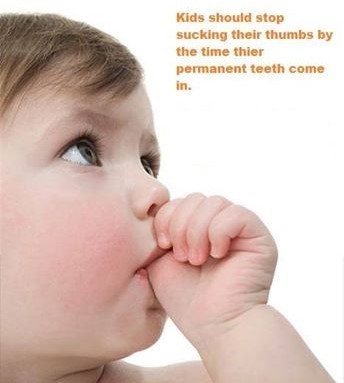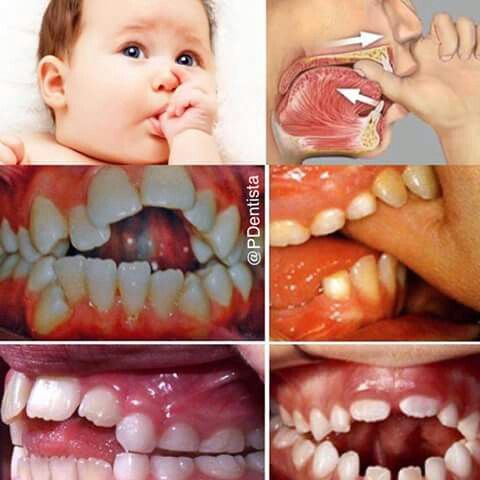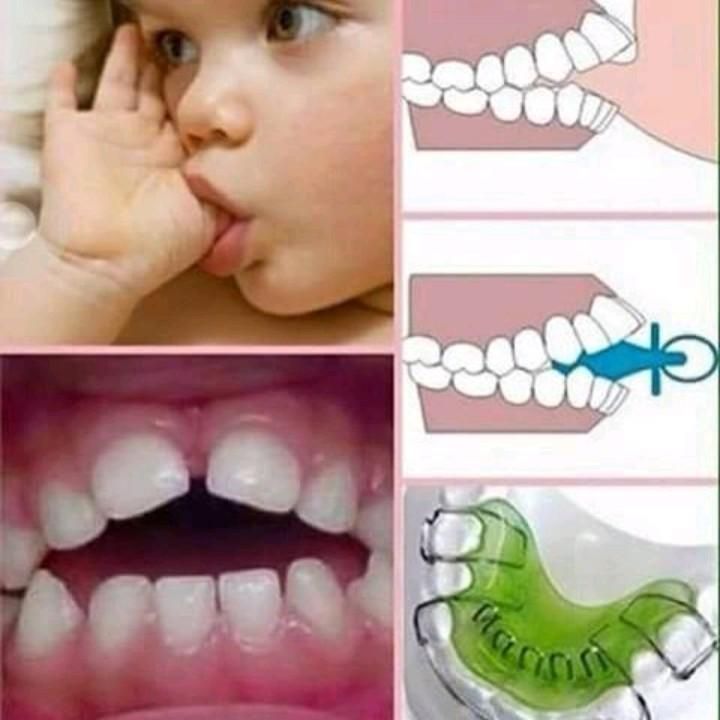
Thumb sucking can have various effects on a child’s dental health, and here are some tips for parents to help with dental care
Effects of Thumb Sucking on Dental Health:
Misalignment of Teeth: Prolonged thumb sucking can push teeth out of alignment, leading to an open bite, overbite, or protrusion of the front teeth.
Changes in Jaw Structure: The pressure from thumb sucking can affect the growth of the jaw, potentially altering its shape and structure.
Speech Impediments: Thumb sucking can interfere with proper tongue placement during speech development, leading to lisps or other speech impediments.
Risk of Infections: The thumb carries bacteria, and constant thumb sucking can introduce harmful bacteria into the mouth, increasing the risk of infections.
Dental Hygiene Challenges: Thumb sucking can make it difficult for children to maintain good oral hygiene, increasing the risk of cavities and gum disease

Tips for Parents:
Start Early: Begin addressing the thumb sucking habit early, ideally by age 2-3. The younger the child, the easier it is to break the habit.
Positive Reinforcement: Praise your child when they are not sucking their thumb. Offer positive reinforcement, such as small rewards or praise, to encourage good behavior.
Identify Triggers: Determine when and why your child sucks their thumb. Is it during stressful situations, boredom, or bedtime? Addressing the triggers can help manage the habit.
Distraction Techniques: Provide alternative activities or distractions to keep hands and mouths busy, such as toys, puzzles, or games.
Thumb Guards: Consider using a thumb guard or thumb sucking deterrent device. These devices make thumb sucking less satisfying and can help break the habit.
Consult a Pediatric Dentist: If the habit persists or begins to affect dental health, seek advice from a pediatric dentist. They can provide guidance tailored to your child’s needs.
Regular Dental Check-ups: Schedule regular dental check-ups for your child. A dentist can monitor the effects of thumb sucking on dental health and provide preventive or corrective treatments as needed.
Gentle Reminders: Offer gentle reminders to your child to stop sucking their thumb, but avoid shaming or scolding. Positive reinforcement is more effective than negative reinforcement.
Create a Routine: Establish a consistent routine for oral care, including brushing teeth twice a day with fluoride toothpaste. Make it a fun and engaging activity for your child.
Role Modeling: Children often mimic behaviors they see in adults. Avoid thumb sucking yourself, as this can influence your child’s habits.

By being proactive and patient, parents can help their child break the thumb sucking habit and maintain good dental health. If you have concerns about your child’s thumb sucking or dental development, don’t hesitate to reach out to a dental professional for guidance.


